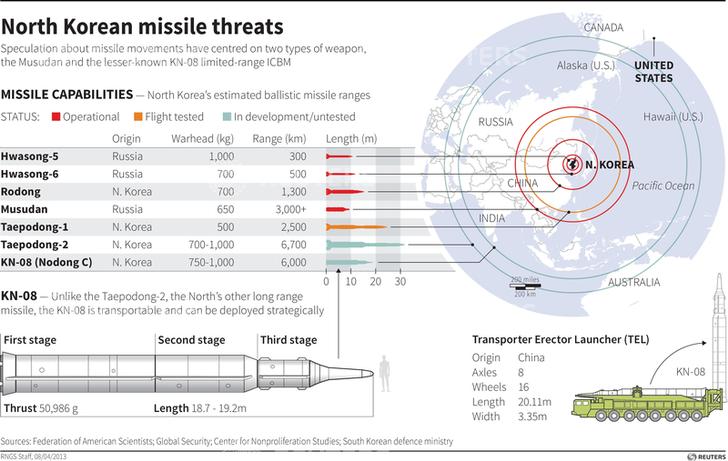
Citing multiple South Korean government sources, the report says the new unit, the KN-08 Brigade, is specially formed to deploy the ICBM of the same name. The new brigade is a subordinate unit of the Strategic Forces, which is in charge of the missile arsenal of the country.
Last week North Korea conducted what it claimed was a rocket launch to put a satellite in the orbit, but the US, Japan and South Korea had condemned the move as pursuit of its ballistic missile programme.
Following the launch, the director of the US National Intelligence, James Clapper, said Pyongyang was "committed to developing a long-range, nuclear-armed missile that is capable of posing a direct threat to the United States."
Clapper also said North Korea "has already taken initial steps toward fielding this (KN-08) system, although the system has not been flight-tested."
The KN-08 has lethal potential, the US security establishment had warned last year, as the missile is believed to have a range of at least 10,000 kilometers.
The Pentagon had said in its annual report the KN-08's mobility would make it difficult to be tracked.
Following last week's rocket launch, the US and South Korea started talks on deploying the sophisticated Terminal High Altitude Area Defense (THAD) system to forestall any threat from Pyongyang.
The US and its allies believe North Korea has advanced its missile capabilities with the latest launch.
"This launch, coupled with the recent nuclear test, indicates further advances in the technology necessary to improving North Korea's capability to strike the continental United States, Alaska or Hawaii ... Now the threat is more serious," Ken Todorov, a former deputy director of the US Missile Defense Agency, told Reuters.









